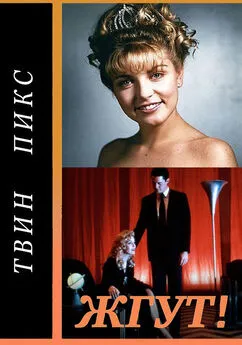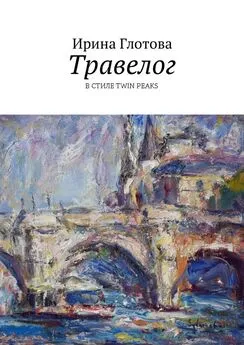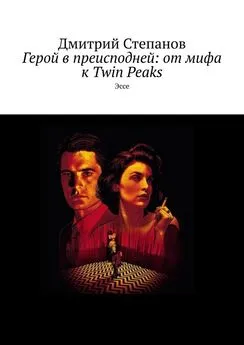Peake, Mervyn - 02 Gormenghast
- Название:02 Gormenghast
- Автор:
- Жанр:
- Издательство:неизвестно
- Год:неизвестен
- ISBN:нет данных
- Рейтинг:
- Избранное:Добавить в избранное
-
Отзывы:
-
Ваша оценка:
Peake, Mervyn - 02 Gormenghast краткое содержание
02 Gormenghast - читать онлайн бесплатно полную версию (весь текст целиком)
Интервал:
Закладка:
'And I'd like this scarf off my eyes.'
'In one moment. Your sister is on her way to you. She will remove it when she has taken you to the south platform: 'Fuchsia!' his voice was sharp and strained. 'Fuchsia! Where are you?'
'I'm coming,' she shouted. 'Hold his arm, you man, there! How do you think he can stand in the dark like that - give him to me, give him to me. Oh Titus,' she panted, holding her blind brother tightly in her arms, 'it won't be long now - and U, it's wonderful! wonderful! As wonderful as it was when it was all for me, years ago, and it's a better night than I had, and absolutely calm with a great white moon on top.'
She led him along as she talked, and all at once the marginal trees were behind them and Fuchsia knew that every step they took and every movement they made was watched by a multitude.
As Titus stumbled at her side he tried to imagine in what kind of place he could be. He could form no picture from Fuchsia's disjointed comments. That he was to be taken to a platform of some kind, that there was a moon, and that the whole castle seemed resolved to make amends for the long prefatory day he had spent alone was all that he could gather.
'Twelve steps up,' said Fuchsia, and he felt her placing his foot upon the first of the rough treads. They climbed together, hand in hand, and when they reached the platform she guided him to where a large horse-hair chair bloated with moonlight, an ugly thing if ever there was one - a heavy beast with a purple skin that had tired out the two cart horses by the time they had covered half the journey.
'Sit down,' said Fuchsia, and he sat down gingerly in the darkness, upon the edge of the ugly couch.
Fuchsia stood back from him. Then she raised both her arms above her head.
In reply to her signal a voice called out of the darkness. 'It is time! Let the scarf be unwound from his eyes!'
And another voice - quick as an echo 'It is time! Let his birthday begin!'
And another – 'For his Lordship is ten.'
Titus felt Fuchsia's fingers undoing the knot and then the freeing of the cloth about his eyes. For a moment he remained with his lids closed, and then he slowly opened them and as he did so he rose involuntarily to his feet with a gasp of wonder.
Before him, as he stood, one hand at his mouth, his eyes round as coins, there was stretched, as it were, across the area of his vision, a canvas - a canvas hushed and unearthly. A canvas of great depth; of width that spread from east to the west and of a height that wandered way above the moon. It was painted with fire and moonlight - upon a dark impalpable surface. The lunar rhythms rose and moved through darkness. A counterpoint of bonfires burned like anchors - anchors that held the sliding woods in check.
And the glaze! The earthless glaze of that midnight lake! And the multitude across the water, motionless in the shadow of the sculptured chestnut trees. And the bonfires burning!
And then a voice out of the paint cried 'Fire!' and a cannon roared, recoiled and smoked upon the bank. 'Fire!' cried the voice again, and then again, until the gun had bellowed ten times over.
It was the sign, and suddenly the picture, as though at the stroke of a warlock's wand, came suddenly to life. The canvas shuddered. Fragments detached themselves and fragments came together. From the height to the depths it was that that Titus saw.
Firstly the moon, by now immediately overhead; a thing as big as a dinner plate and as white, save where the shadows of its mountains lay. The moon whose lustre was over everything like a veil of snow.
And all about the moon, the midnight sky. It came down, this sky, like a curtain, expansive as nemesis and under the sky the hilltops in a haze of ferns that overlapping one another with their fronds, descended the hill, fold after fold until the chestnut forest, luxuriant in its foliage, its upper canopies shining, stretched on Titus' eye-level in a great curve. And under these trees, along the water's edge, as thick upon the ground as nettles in wasteland, was the life of the distant castle, the teeming populace. A hundred at a time would be contained in the cast-shadow of a single tree; a hundred more be lit in a lozenge of moonlight. And then the swarms of faces, thick as bees, illumined and flushed in the red light of the lakeside bonfires. Now that the gun had fired its salute, this long strip of the canvas had begun to seethe. Across the lake it was too far for Titus to be able to make out any single creature, but movements ran through these crowds as a ripple of wind over a field of tares. But this was not all. For these ripples, these trembling blotches of shadow and moonlight, these movements on the shore, were being simultaneously repeated in the lakes. Not the least motion of a head beneath the trees but its ghost had moved beneath it in the water. Not the flicker of a fire was lost in the reflecting water.
And it was this nocturnal glass in whose depths shone the moon-bathed foliage of the chestnut trees that held the eye the longest. For it was nothingness, a sheet of death; and it was everything. Nothing it held was its own although the least leaf was reflected with microscopic accuracy – and, as though to light these aqueous forms with a luminary of their own, a phantom moon lay on the water, as big as a plate and as white, save where the shadow of its mountains lay.
And yet this visual richness gave less a sense of satisfaction than of expectancy. This was a setting if ever there were one - but a setting for what? The stage was set, the audience was gathered - what next? Titus turned his eyes for the first time to where his sister had been standing, but she was no longer there. He was alone on the platform with the horsehair chair.
And then he saw her seated on a log with her mother beside her. From their feet the land dipped gradually to the water and on this decline was gathered what was pleased to think itself the upper stratum of Gormenghast society. To right and left the ground swarmed with officials of every kind - and over Titus, and over them all were the spreading terraces of the trees.
Finding himself alone. Titus sat down on the purple chair and then, to make himself more comfortable, curled his feet under him, and rested his arm on the bolster-like arm. He lifted his eyes to the lake with its upside-down picture of all that was spread above it.
Fuchsia trembled as she sat beside her mother. She remembered how the chestnut woods had held back their secret until this moment, years ago, and how they would now throw out their startling characters. She turned her head to see whether she could catch her brother's eye, but he was staring straight ahead, and as she watched him his hand went to his mouth again and she saw him sit forward on the couch as rigidly as though he had been turned to stone.
For immediately ahead of-him, across the unblemished lake, figures as tall as the chestnut trees themselves were straddling out of the shadows, and to the verge of the opposite bank, where they stood, unbelievably. Before them, their liquescent stage lay spread. The reflections of their fantastically elongated bodies were already deep in the lake.
There were four of them, and they came out one after another from various parts of the forest. They appeared to take no notice of one another although they turned their heads to right and left. The movements of their bodies appeared stiff and exaggerated. but extraordinarily eloquent.
From the high masks that topped them, to the grass on which they balanced could not have measured less than thirty feet.
They were beings of another realm and the crowds that stared up at them from below had not only been shrivelled up into midgets, but were also made to appear grey and prosaic. For these four giants were in every way most beautiful and extraordinary. The woods behind them seemed darker than ever now, for these lofty spectres were tinted under the moon's rays with colours as sharp and barbaric as the plumage of tropical birds.
From one to another, Titus turned his gaze, unable to resist the movements of his eyes, although he longed to dwell on each one separately.
Upon their lofty shoulders they carried their heads like kings - abstracted and inscrutable. Their dignity was something that infused their slightest movement. In the stiff and measured raising of an arm the very humus appeared to be drawn out of the soil below. The tilting of their faces to the sky made the sky naked - made the moon guilty.
The group had stalked out of that part of the forest that faced Titus across the lake. Their four heads were very different. That of the most northerly was crowned with a high conical hat like a dunce's, under which a great white head resembling a lion's turned slowly to left and right, upon the shoulders that supported it. The eyes, perfectly circular, were painted the purest emerald green and when the head was raised they shone to the moon.
But its mane was its glory. From close above the eyes, and from the sides and back of the head it billowed forth luxuriantly and fell as far as the waist in undulations of imperial purple. From the waist downwards - a twenty foot drop to the feet of the stilts - a prodigious skirt descended like a cascade, weighted down by its own length of material. It was quite black, as were those of the other three. This mutual darkness of the lower two thirds of their bodies gave an illusory effect to their upper parts. The skirts could be seen, and their reflections could be seen, but with nothing like the same clarity. It was, at times, almost as though their coloured 'heights' were floating. The arms emerged from halfway down the mane. In either hand the Lion held a dagger.
Next to this figure with its purple mane, stood one as far removed as the Lion from the natural, but more sinister in that the wolfish character of the head was not redeemed by either a noble cast of feature, or lightened by the charade-like nature of the long white dunce's hat.
This vulpine monster was undeniably wicked - but so decoratively wicked!
The head was crimson, and the cocked and pointed ears were deepest azure. This azure was repeated in the circles that were scattered over the grey hide of the upper body. In either hand was an enormous cardboard bottle of poison. As with the Lion the black skirt fell like a wall of darkness.
Even now as it stood in what might be thought of as the 'wings' for they had not set foot in the watery stage, their every movement was something awesome. For the Wolf to lift its poison-bottle was for a shudder to run through the swarming populace; for the Lion to shake its mane was for the lake to be circled with gooseflesh.
Next to the Wolf, and separated by half an acre of upturned heads was the Horse - a horse unlike any other travesty of that noble animal that had ever been concocted - and yet it was more a horse than anything else. It was monstrous, in its own way, with an expression of such fatuous melancholy that Titus could neither laugh nor cry for neither expression was true to what he felt.
Upon its head, this giantess wore an enormous basket-work hat whose brim cast a circular shadow upon the moonlit water far beneath. Long powder blue ribbons fell ludicrously from the crown of the hat and clustered about the hairy shoulder ten feet below. All about the lower part of the crown the hat was decorated with grass and livid lilies.
From beneath all this resplendence the loose-lipped head of the Horse protruded with baleful idiocy. Like the Lion, its long maudlin head was white, but red circles were painted on either side between the eyes and the curve of the jaws. The neck was long and absurdly supple, with a stubby fringe of orange hair along the spine.
Читать дальшеИнтервал:
Закладка:



